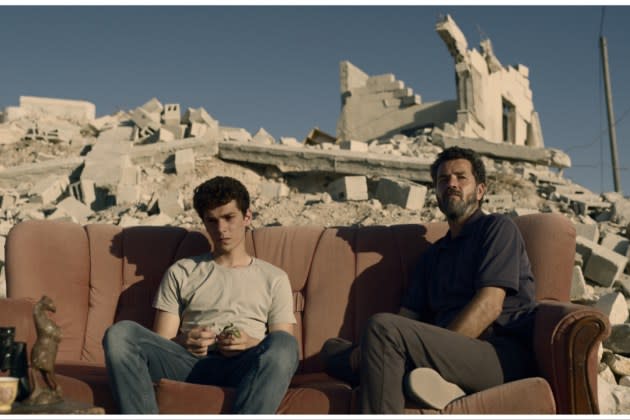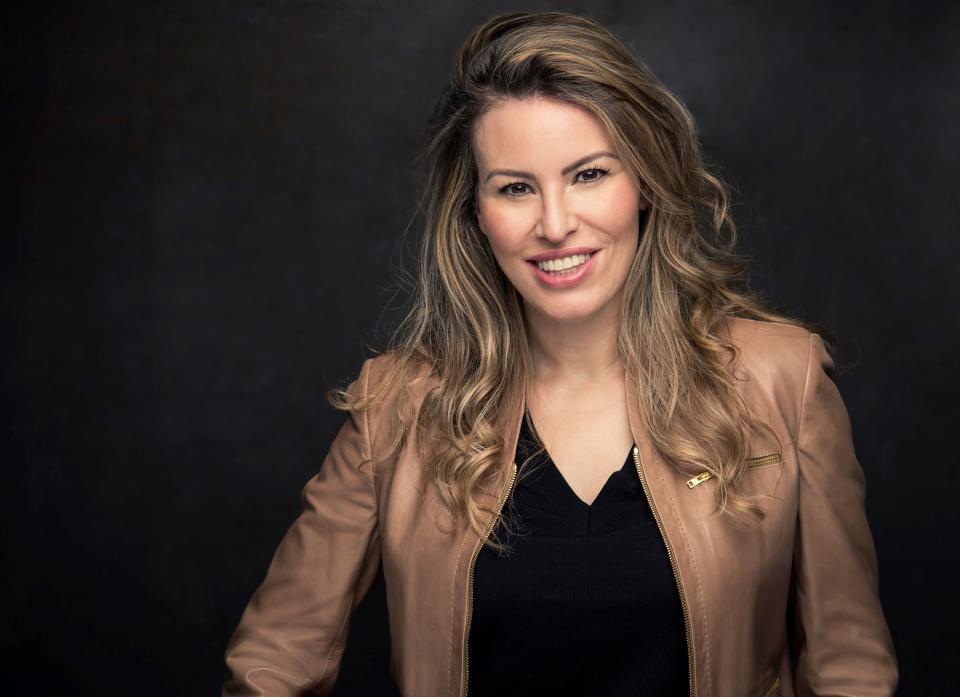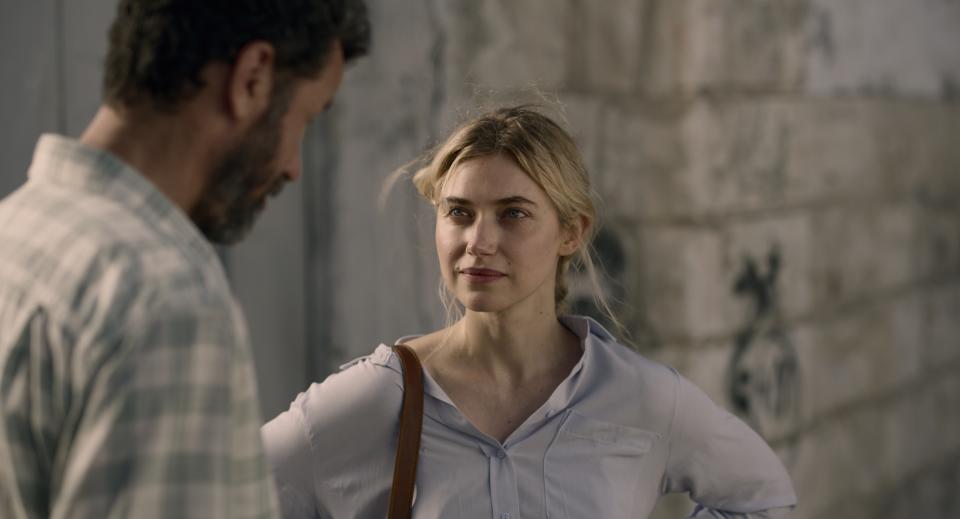British-Palestinian Filmmaker Farah Nabulsi On Debut Feature ‘The Teacher’: “I Needed To Make This Film To Cope With The Injustice I’ve Witnessed” — Toronto

When British-Palestinian filmmaker Farah Nabulsi was watching the UK media coverage of the Gilad Shalit prisoner exchange in 2011, it had a profound impact on her. At the time, Shalit was an Israeli soldier who had been abducted in 2006 by Palestinians (the first Israeli soldier to be captured by Palestinians since 1994). Shalit was eventually released five years later in exchange for more than 1,000 Palestinian prisoners, including hundreds of which were women and children.
“I remember thinking at the time that this was such a huge imbalance in the value for human life,” Nabulsi tells Deadline over a Zoom interview from Egypt, where she is attending her stepdaughter’s wedding. “One person in exchange for one thousand others! But I also remember thinking about that on an individual level and that, to that soldier’s parents and loved ones, he would be worth hundreds of thousands if not millions of lives.”
More from Deadline
This observation, coupled with Nabulsi’s numerous experiences in Palestine where she had encountered many members of the community who had experienced first-hand some “cruel and absurd things such as home demolitions, child prisoners in military detention, settler violence and vandalism,” were what ultimately inspired her debut feature The Teacher, which world premieres in the Toronto Film Festival’s Discovery program on September 9.

The film follows a Palestinian schoolteacher Basem (The Band Visit’s Saleh Bakri) who acts as a father figure to two of his students Yacoub and Adam (Muhammad Abed Elrahman) amidst turmoil in the West Bank. Upon meeting British volunteer worker Lisa (Imogen Poots), Basem struggles to reconcile his life-threatening commitment to political resistance and his emotional support for Yacoub and Adam with the chance of a new romantic relationship. Stanley Townsend, Paul Herzberg and Andrea Irvine also star.
Bakri previously starred in Nabulsi’s 2020 short film The Present, about a father and daughter in the Palestinian enclaves of the Israeli-occupied West Bank trying to buy a wedding anniversary gift. That project won the BAFTA Award for Best Short Film and was nominated for an Academy Award for Best Live Action Short Film.
For her feature debut, it was important for Nabulsi (who was born and educated in the UK but has Palestinian parents) to continue to use filmmaking as a way to give a voice to the marginalized Palestinian community but through the lens of a more personal story about someone living in that reality.
“This is a story about characters that represent a severely marginalized and underrepresented people,” she says of the UK-Palestine-Qatar co-production. “And it does challenge certain stereotypes and it gives insights into the lives and struggles of those people whose voices have often been ignored, excluded or misrepresented. I want to make films that matter and have depth and meaning – not only as a filmmaker but as a human being as well and certainly as a Palestinian by heritage. It’s important for me to give a voice to those people that I am connected to, who are suffering this kind of oppression.”
The Teacher was shot entirely in Palestine, something that Nabulsi admits took a big emotional and mental toll on her and her film team. “We were making a film that was set in a very harsh reality and shooting with that reality unfolding in real time around you – it was very convoluted,” she says.
At the beginning of the shoot, Nabulsi (who is also a producer on the film with Sawsan Asfari and Ossama Bawardi) recalls Israeli settlers torching olive trees in a Palestinian village, echoing a very pivotal scene at the beginning of the film.
One morning, on her way to set, she pulled up on the road where a couple was standing with their children in front of the rubble of their freshly demolished house. “I got out of my car and ended up hugging the mother – a complete stranger – and crying,” she says. “And then I had to carry on working where we were making a film about what was happening right now.”
Then there were the obvious safety issues that come with shooting a film in a conflict zone: The Israeli military raided the Palestinian city of Nablus during the shoot, just a few kilometers from where the film had been shooting just a few hours prior.
“The emotional and mental toll – not just as a Palestinian – but as a human is very difficult,” she says. “You’re absorbing it but you’re trying to remain positive, you’re trying to still lead your team and you’re trying to do justice to that reality that’s unfolding around you in your film. So, there’s a definite pressure from that.”

But while she admits that there might have been reservations with her cast and team about coming to Palestine initially, she says that “each one of them came to me personally and said that it was a life-changing experience for them. It was a really beautiful and tight-knit experience for all of us.”
Of course, Nabulsi is cognizant that any film set in Palestine is going to be considered political, but she prefers to think of The Teacher as more of a “human drama set in a political landscape.”
“There are certain stark stereotypes that have permeated in Western media and around the world for a long time and I really hope that this film lends itself to tearing down those stereotypes and overcoming those misconceptions, as only cinema really knows how to do,” she says. “Cinema is the most powerful and beautiful medium of human communication that the world has ever known so if I’ve played a part through this film to speak to and overcome some of that opaque understanding of the reality on the ground of military occupation and settler colonization that has been taking place for decades, then that’s wonderful.”
She adds, “I needed to make this film to deal with the pain. To deal with the guilt, to deal with wanting to be able to look at myself in the mirror and respect myself as a human being. I guess you could say I needed to make this film to cope with the injustice that I’ve witnessed and become acutely aware of. And there’s nothing more spiritual or cathartic than to create.”
Best of Deadline
2023 Premiere Dates For New & Returning Series On Broadcast, Cable & Streaming
SAG-AFTRA Interim Agreements: Full List Of Movies And TV Series
Venice Film Festival 2023 Photos: The Red Carpet Premieres & Closing Ceremony Winners
Sign up for Deadline's Newsletter. For the latest news, follow us on Facebook, Twitter, and Instagram.

 Yahoo News
Yahoo News 
